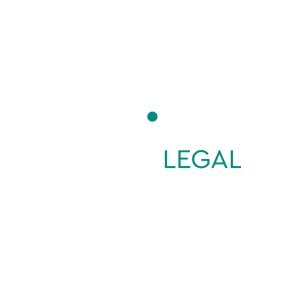Best Climate Change Law Lawyers in Mauritius
Share your needs with us, get contacted by law firms.
Free. Takes 2 min.
Or refine your search by selecting a city:
List of the best lawyers in Mauritius
About Climate Change Law in Mauritius
Climate Change Law in Mauritius refers to the body of laws, regulations, and policies aimed at addressing the effects of climate change and mitigating its impacts on the environment, economy, and society. As a small island developing state, Mauritius is particularly vulnerable to the adverse effects of climate change, such as sea level rise, extreme weather events, and loss of biodiversity. To combat these challenges, Mauritius has enacted specific acts and policies, and has also committed to international agreements targeting climate change mitigation and adaptation. The legal framework in Mauritius covers a range of issues, from greenhouse gas emissions and renewable energy to environmental protection and disaster preparedness.
Why You May Need a Lawyer
There are various situations in which individuals, businesses, or organizations may require legal assistance regarding climate change matters in Mauritius. Some of the common scenarios include:
- Seeking legal compliance with environmental and climate change regulations for projects or developments
- Applying for permits related to activities that may affect the environment or require environmental impact assessments
- Challenging or defending against enforcement actions by government authorities
- Understanding obligations under local and international climate agreements
- Advising on liability issues arising from environmental damage or pollution
- Assisting with land use, zoning, and property issues linked to climate change impacts
- Supporting green business initiatives and accessing incentives for renewable energy projects
- Addressing human rights concerns related to environmental justice and climate adaptation
- Navigating insurance, compensation, or damage claims following climate-related disasters
A lawyer specializing in Climate Change Law can help interpret complex legislation, represent your interests in negotiations or disputes, and ensure that your actions and policies comply with local standards and international commitments.
Local Laws Overview
Climate Change Law in Mauritius is influenced by several key statutes and policies. The Environmental Protection Act (EPA), originally enacted in 1991 and amended multiple times, forms the cornerstone of environmental law, providing a comprehensive framework for pollution prevention, environmental standards, and protected areas.
Mauritius also enacted the Climate Change Act in 2020, which aims to strengthen the country's capacity to manage the effects of climate change and to honor its obligations under the Paris Agreement. This act establishes an institutional framework, sets targets for greenhouse gas emission reduction, and outlines processes for climate adaptation and disaster risk reduction.
Other relevant laws and policies include:
- The National Disaster Risk Reduction and Management Act 2016
- Regulations governing energy production, including incentives for renewable energy
- Building and land use planning codes designed to increase climate resilience
- Policies relating to biodiversity conservation, marine and coastal management
Compliance with these rules may require Environmental Impact Assessments (EIA) and engagement with various regulatory authorities, depending on the nature and scope of your activities. Mauritius is also party to several international conventions and regularly updates its Nationally Determined Contributions (NDCs) under the United Nations Framework Convention on Climate Change (UNFCCC).
Frequently Asked Questions
What is the Climate Change Act 2020?
It is a law that sets the legal framework for climate change mitigation and adaptation in Mauritius. It outlines government responsibilities, emission reduction targets, reporting requirements, and supports the implementation of the Paris Agreement.
Who enforces climate change and environmental laws in Mauritius?
The Ministry of Environment, Solid Waste Management and Climate Change, along with agencies such as the Environmental Protection Agency (EPA), are primarily responsible for enforcement and monitoring.
Do I need an Environmental Impact Assessment (EIA) for my project?
Many types of development or industrial projects require an EIA as a prerequisite before proceeding. The requirements depend on project type, size, and potential environmental impacts. Legal advice can help clarify your obligations.
What penalties exist for non-compliance with climate change regulations?
Penalties can include fines, suspension of activities, remediation orders, and even imprisonment for serious violations. Each law specifies different sanctions based on the nature and severity of the offense.
How does Mauritius address renewable energy?
Mauritius promotes renewable energy through policies and incentives, aiming to reduce reliance on fossil fuels and cut greenhouse gas emissions. Legal measures support the development and integration of renewable sources such as solar and wind.
Are businesses required to take action on climate change?
Businesses are expected to comply with relevant laws, including those on emissions and sustainability. Certain sectors may have additional reporting or mitigation requirements, particularly if they have a significant environmental impact.
What international agreements on climate change is Mauritius a part of?
Mauritius is party to the United Nations Framework Convention on Climate Change (UNFCCC), the Paris Agreement, and other international conventions that guide its national climate policies and commitments.
How can individuals contribute to legal climate action?
Individuals can participate by complying with local regulations, engaging in public consultations, reporting violations, and supporting community or policy initiatives. Legal channels are available for raising concerns or challenging public decisions.
What role do NGOs play in Climate Change Law?
Non-governmental organizations are active in advocacy, raising awareness, participating in policymaking, supporting legal actions, and holding both governments and businesses accountable for climate commitments.
Can climate related disputes be taken to court in Mauritius?
Yes, disputes involving environmental harm, regulatory compliance, or compensation for climate-related damages can be brought before the Mauritian courts. Specialized legal support is recommended for navigating these complex cases.
Additional Resources
Several institutions and organizations can assist those seeking legal information or help concerning Climate Change Law in Mauritius:
- Ministry of Environment, Solid Waste Management and Climate Change
- Environmental Protection Agency
- The Attorney General’s Office
- Mauritius Meteorological Services (for climate impact data)
- National Disaster Risk Reduction and Management Centre
- University of Mauritius - Faculty of Law and Management
- Environmental NGOs such as the Mauritius Council for Development, Environmental Studies and Conservation (MAUDESCO)
These bodies can provide information, guidance, or referrals for more specific legal advice.
Next Steps
If you believe you need legal assistance in the field of Climate Change Law in Mauritius, consider the following steps:
- Identify the specific nature of your issue, whether it is compliance, dispute resolution, policy, or seeking permits
- Gather relevant documents, such as contracts, permits, correspondence with authorities, or project proposals
- Contact a qualified lawyer with experience in environmental and climate change law
- Arrange an initial consultation to discuss your case and receive an assessment of your rights and options
- Utilize information from governmental bodies and NGOs for context and support
- Stay informed about ongoing policy updates and changes in local climate change laws
A legal expert can guide you through the complexities of the law, help protect your interests, and ensure that you are acting in accordance with the evolving legal landscape in Mauritius.
Lawzana helps you find the best lawyers and law firms in Mauritius through a curated and pre-screened list of qualified legal professionals. Our platform offers rankings and detailed profiles of attorneys and law firms, allowing you to compare based on practice areas, including Climate Change Law, experience, and client feedback.
Each profile includes a description of the firm's areas of practice, client reviews, team members and partners, year of establishment, spoken languages, office locations, contact information, social media presence, and any published articles or resources. Most firms on our platform speak English and are experienced in both local and international legal matters.
Get a quote from top-rated law firms in Mauritius — quickly, securely, and without unnecessary hassle.
Disclaimer:
The information provided on this page is for general informational purposes only and does not constitute legal advice. While we strive to ensure the accuracy and relevance of the content, legal information may change over time, and interpretations of the law can vary. You should always consult with a qualified legal professional for advice specific to your situation.
We disclaim all liability for actions taken or not taken based on the content of this page. If you believe any information is incorrect or outdated, please contact us, and we will review and update it where appropriate.
Browse climate change law law firms by city in Mauritius
Refine your search by selecting a city.
















